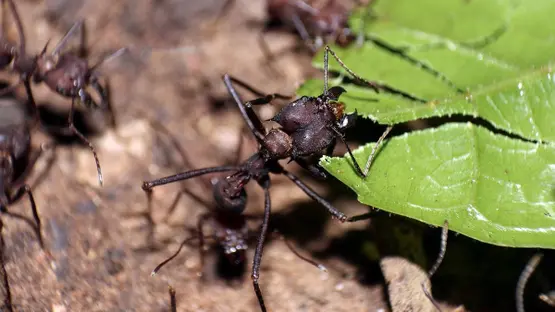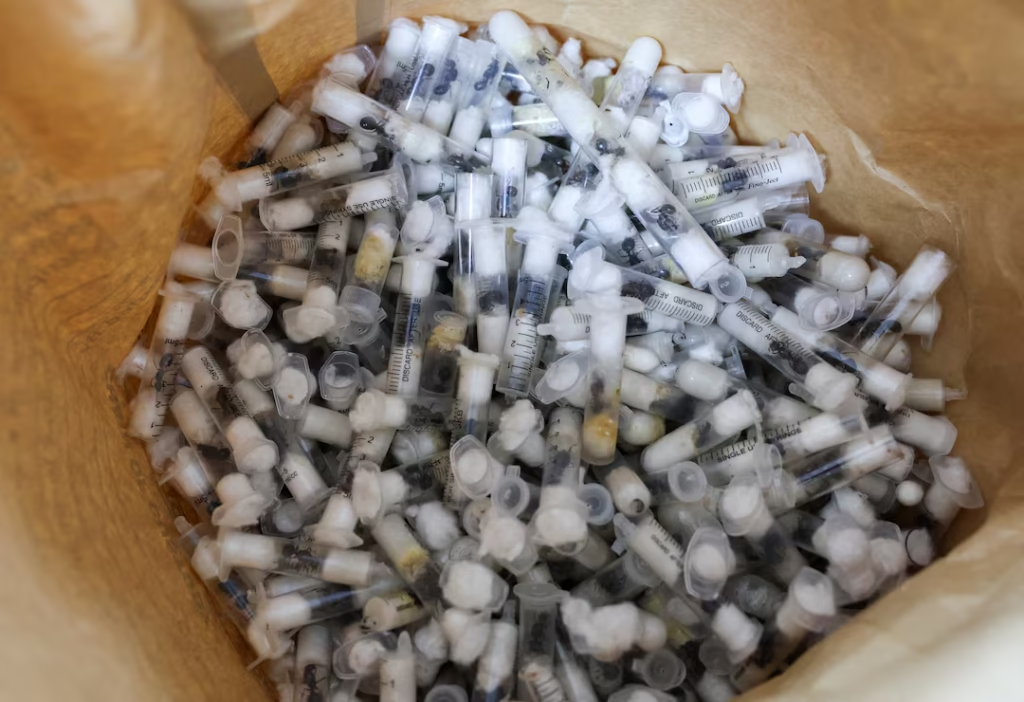NAIROBI, Kenya — Kenyan wildlife authorities have thwarted a sophisticated international plot to smuggle thousands of live ants, including rare queen specimens of the Messor Cephalotes, out of the country — a case being hailed as a landmark moment in the country’s war against wildlife trafficking and biopiracy.

According to the Kenya Wildlife Service (KWS), four individuals — two Belgian nationals, one Vietnamese citizen, and one Kenyan — were arrested while attempting to smuggle approximately 5,000 queen ants, including from the highly coveted Giant African Harvester Ant species, to buyers in European and Asian exotic pet markets.
The live insects were ingeniously concealed inside modified laboratory test tubes and syringes, designed to sustain them for up to two months and evade detection by airport scanners. Authorities made the arrest at Jomo Kenyatta International Airport, where the suspects were preparing to board an outbound flight.
“Investigations revealed that the test tubes had been custom-engineered to keep the ants alive and undetected during air travel,” the KWS stated, calling the operation “premeditated and well-executed.”
The intercepted ants were packed in 2,244 containers with an estimated street value of 1 million Kenyan shillings (approximately $7,800 USD), according to court records
This marks one of Kenya’s first major cases involving the illegal trafficking of insects, a growing trend in the global exotic pet trade. While typically overshadowed by cases involving elephants, rhinos, and other iconic African animals, the illegal trade in smaller yet ecologically vital species like ants is now emerging as a serious threat.

“These insects are part of Kenya’s genetic resources, and removing them without prior informed consent or benefit-sharing agreements is a direct violation of our laws and international conventions,” the KWS said in a statement. “This unprecedented case signals a shift in trafficking trends — from charismatic megafauna to lesser-known yet ecologically critical species.”
Wildlife crime experts say the Messor Cephalotes — native to Kenya — is especially prized among exotic insect enthusiasts for its size, color, and colony-building behavior.
The four suspects appeared before the Jomo Kenyatta International Airport Court on Tuesday after pleading guilty to charges of illegal possession and trafficking of live wildlife. The court adjourned proceedings until April 23, pending pre-sentencing reports from the KWS, the National Museums of Kenya, and the Probation Department. All four remain in custody.
“We did not come here to break any laws. By accident and stupidity, we did,” said David Lornoy, one of the Belgian defendants, pleading for leniency from the court.
Authorities noted that exporting any native insect species such as the Messor Cephalotes requires a special license from the Kenya Wildlife Service, along with a health certificate. A source within the international ant trade, speaking on condition of anonymity, said the species is highly sought after and hard to legally acquire, making it a target for smugglers.
Exotic insect enthusiasts often keep ant colonies in formicariums — transparent enclosures that allow observation of complex colony behavior. The Messor Cephalotes, known for its distinctive 20–24mm red and black queens, is described by specialist retailer AntsRUs as a “dream species.”
Currently out of stock, AntsRUs lists the price of a single queen at £99.99 ($132.44 USD).
This case also underscores broader concerns about biopiracy — the exploitation of a country’s native flora and fauna without fair compensation or consent. Kenya is one of several African nations pushing for stronger enforcement of access and benefit-sharing (ABS) regulations under the Nagoya Protocol.
As the global demand for exotic pets expands beyond reptiles and mammals to include invertebrates like ants, experts warn that biosecurity, biodiversity, and legal protections must evolve accordingly.
The Kenya Wildlife Service has vowed to pursue similar cases aggressively and to raise public awareness about the environmental and legal risks posed by the illicit insect trade.
“We are committed to defending all of Kenya’s biodiversity — not just the big five,” the KWS emphasized.



